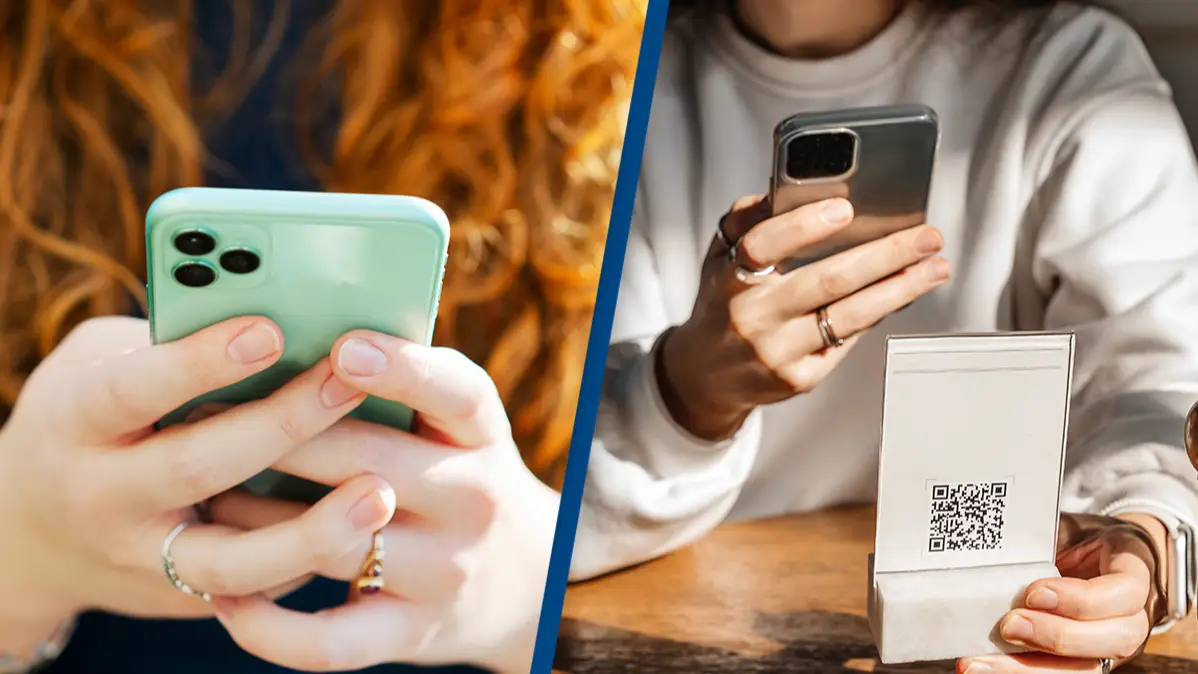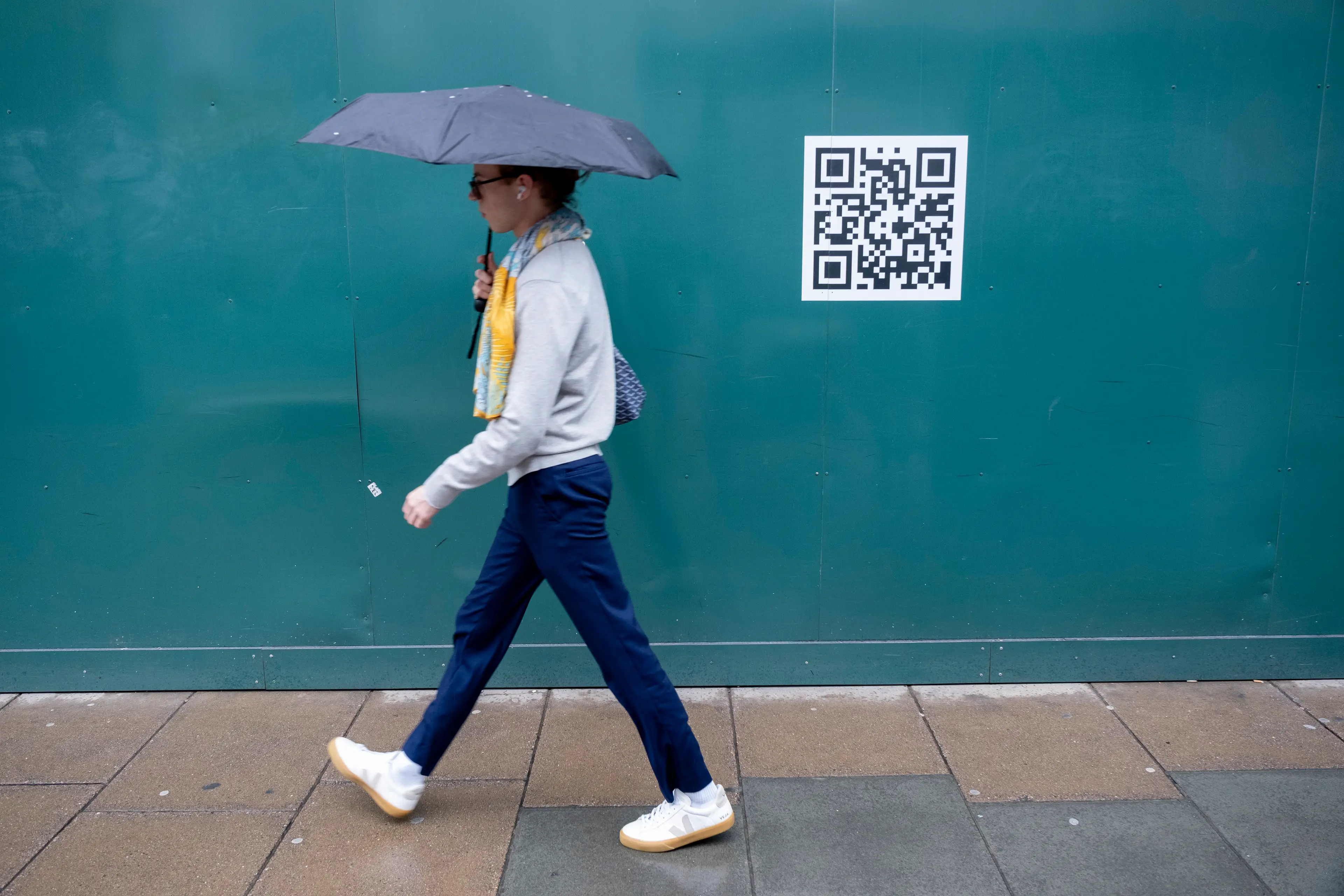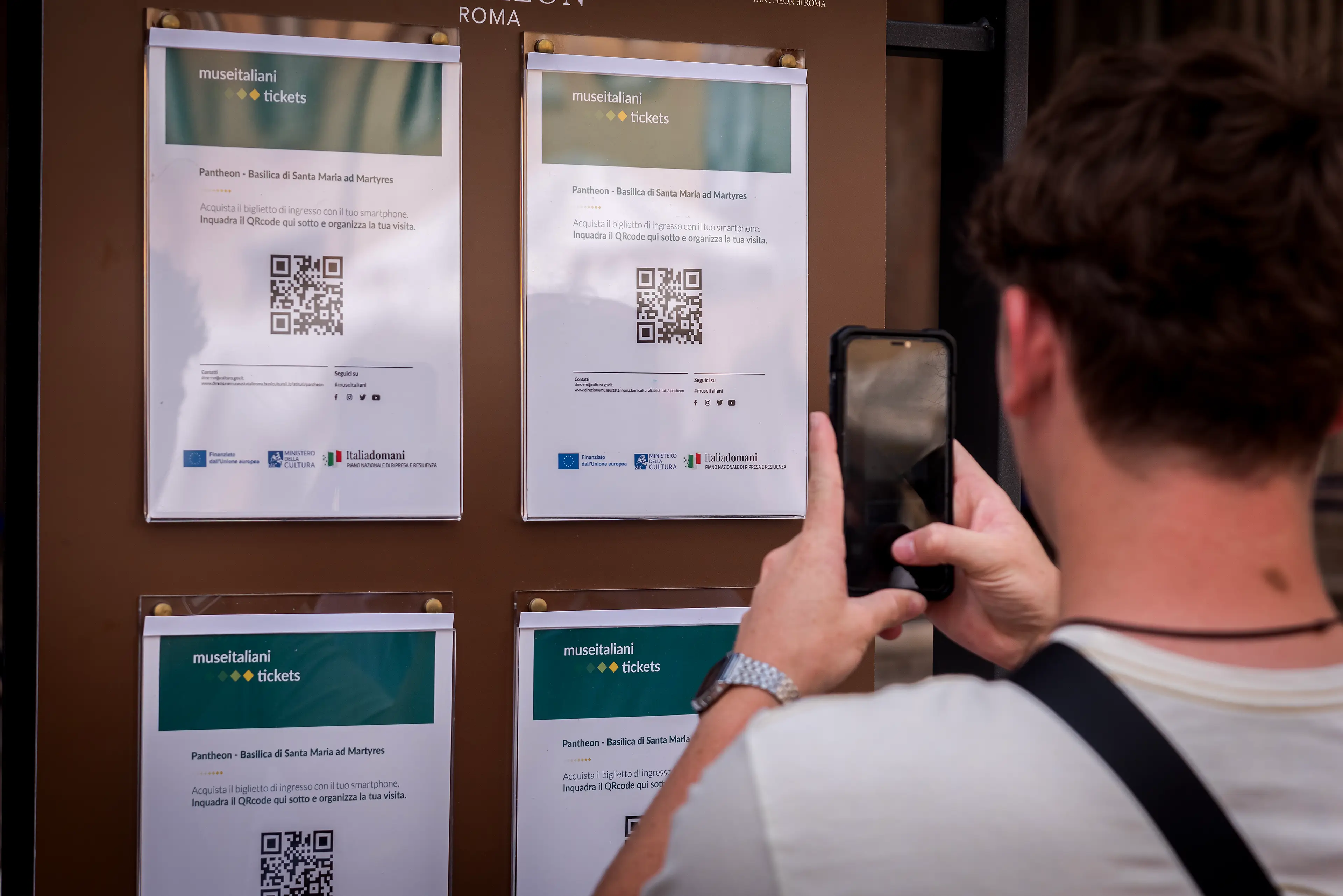
A cybersecurity expert has spoken out to issue a warning over people casually scanning QR code symbols without really thinking.
You may think you're savvy enough already by avoiding charging your phone at the airport and using the 'safety check' feature on your iPhone.
However, there's another security issue that can arise through a very common action that you've probably done at least a handful, if not hundreds of times.
Advert
If you've been getting out and about a lot to make up for time lost to COVID, then you may have noticed the rise in the use of QR codes.
Not only do QR codes mean you don't have to touch any grotty menus to see what food you want to order from a restaurant, they also mean some bars now offer more table service so you don't have to crowd around waiting in queues; and sometimes, you even see random QR codes stuck to lampposts and on transport advertising certain products or events.
While many of us zap and tap away at QR codes without thinking much of it, cybersecurity expert Adrianus Warmenhoven from NordVPN has since explained why we should all be exercising slightly more caution.

In an interview with Metro, Warmenhoven warns QR codes can 'quite easily be subverted' - but what does this mean?
Well, he explains: "Let's say, you're in a restaurant and I see a lot of restaurants which have just QR codes as a sticker.
"As an attacker, I might not be able to create a sticker at the table at that moment, but I can take a picture of it and then for almost maybe a pound - it's really cheap - I can create my own QR stickers which have the exact format, color, etc. [...] and I can put my own URL in it."
The expert explains if you have an 'unpatched browser' or one with a vulnerability and the QR code takes you to your phone's browser, which takes you to the page linked in by an attacker, then an attacker can 'take over and infect the system' on your device.
And there's an even more worrying reason why this is all so scary.

Warmenhoven explains that the customer 'will not suspect anything is out of the ordinary' even after the attacker takes over and infects their phone.
"It might take a really time for you to know you have been infected by using that QR code."
And while you may think you already exercise caution when it comes to your phone's security, Warmenhoven notes that if you visit somewhere you 'trust' then it's likely you often 'implicitly trust' any QR codes you see at the site too.
However, this shouldn't put you off using QR codes completely, as Warmenhoven states that you should just be 'more aware' and 'treat them as you would any other link'.
So, next time you're out and about to scan a code, she recommends: "The best way is to use your camera, not directly your browser or check if your browser will show you the link before you continue."
Topics: Phones, Technology, iPhone